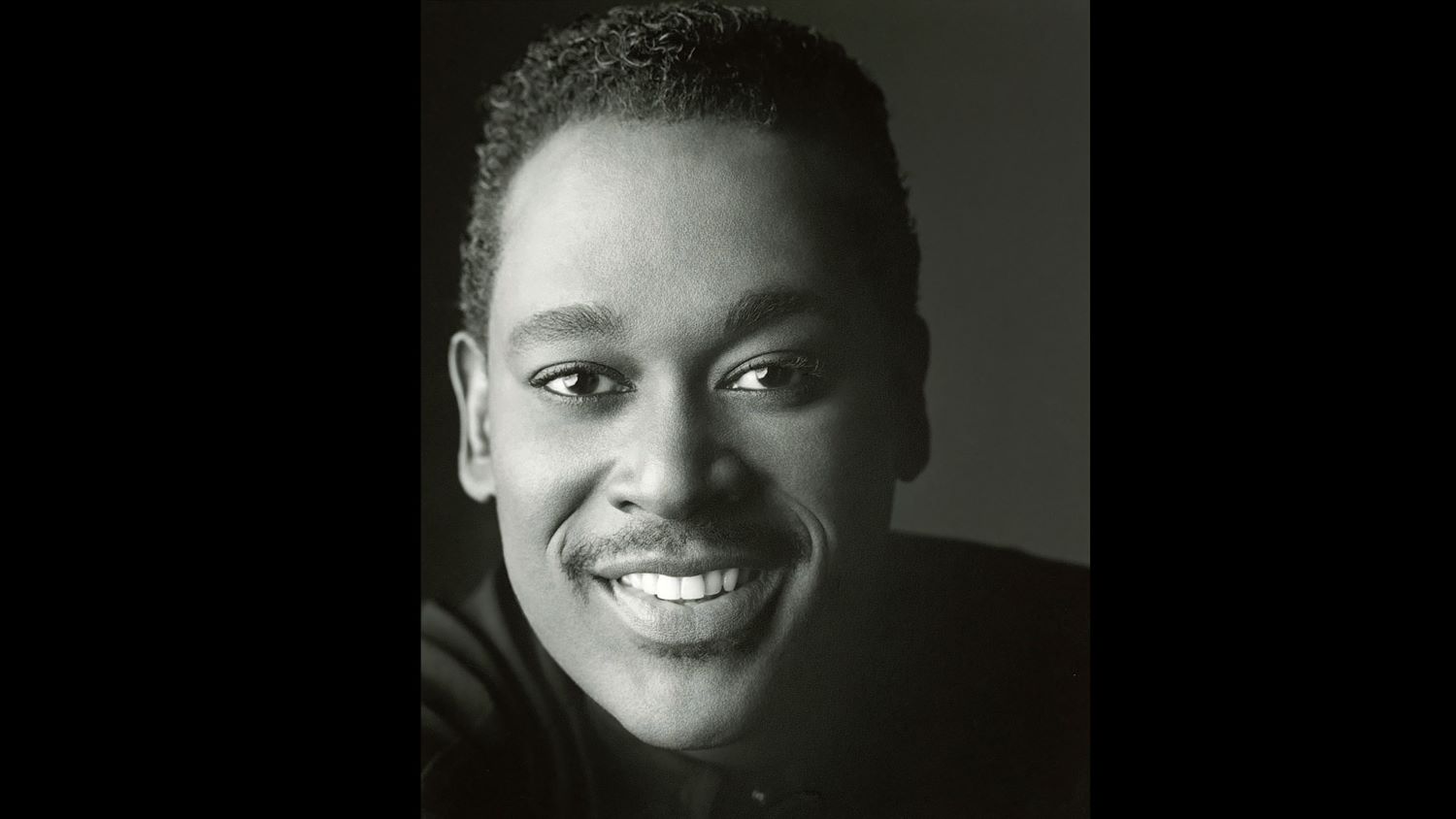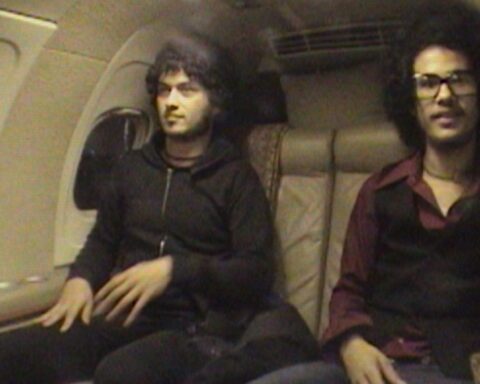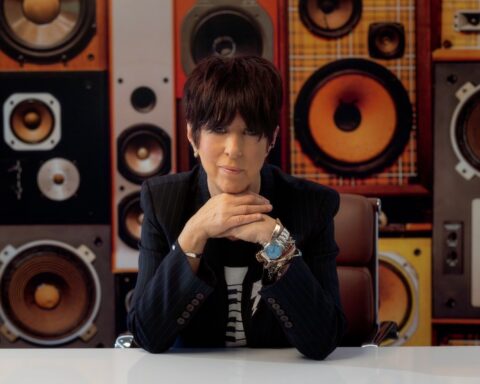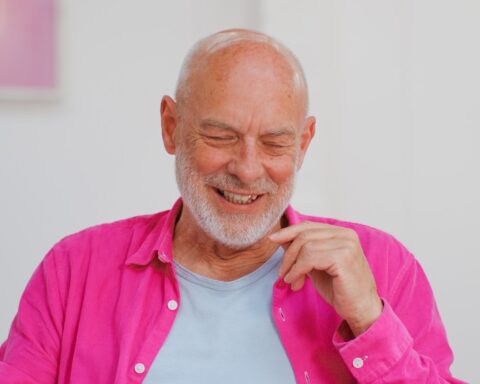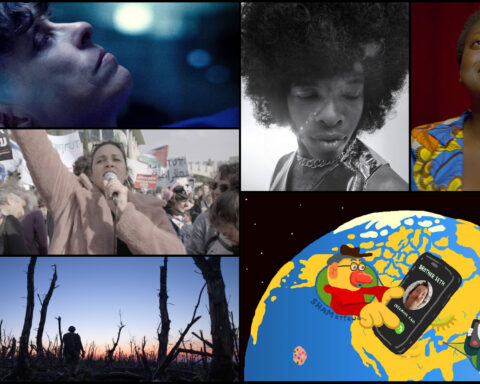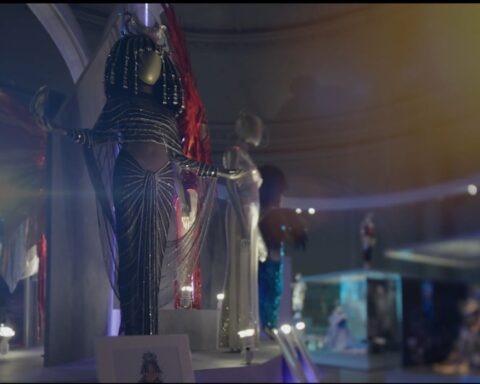Dawn Porter is a highly accomplished director and producer with a filmography of documentaries covering aspects of American life. Her 2013 directorial debut Gideon’s Army earned an award for film editing at Sundance and earned a News and Documentary Emmy nomination, while other major projects such as Rise Again: Tulsa and the Red Summer (2021), John Lewis: Good Trouble (2020), and Trapped (2016) have screened to international acclaim.
Her latest project, Luther: Never Too Much, premiered at this year’s Sundance Film Festival and has its Canadian premiere as the opening night film of Hot Docs 2024. The film could stand as a definitive portrait of singer Luther Vandross, the voice behind hit songs such as “Dance with My Father,” “Never Too Much,” and “Here and Now.” Porter explores the man behind the music, capturing a life’s story that deepens Vandross’s work. A bold, impressively detailed celebration of Vandross’ varied career, I argue in my review that the film “proves it’s never too soon to celebrate this phenomenal talent.” Prior to the film’s Hot Docs premiere, I spoke to Ms. Porter over Zoom from her apartment in New York, discussing some of the joys and challenges of bringing this story to audiences, and how even now things remain in flux for Luther’s story to be seen by an even wider group outside the festival environment.
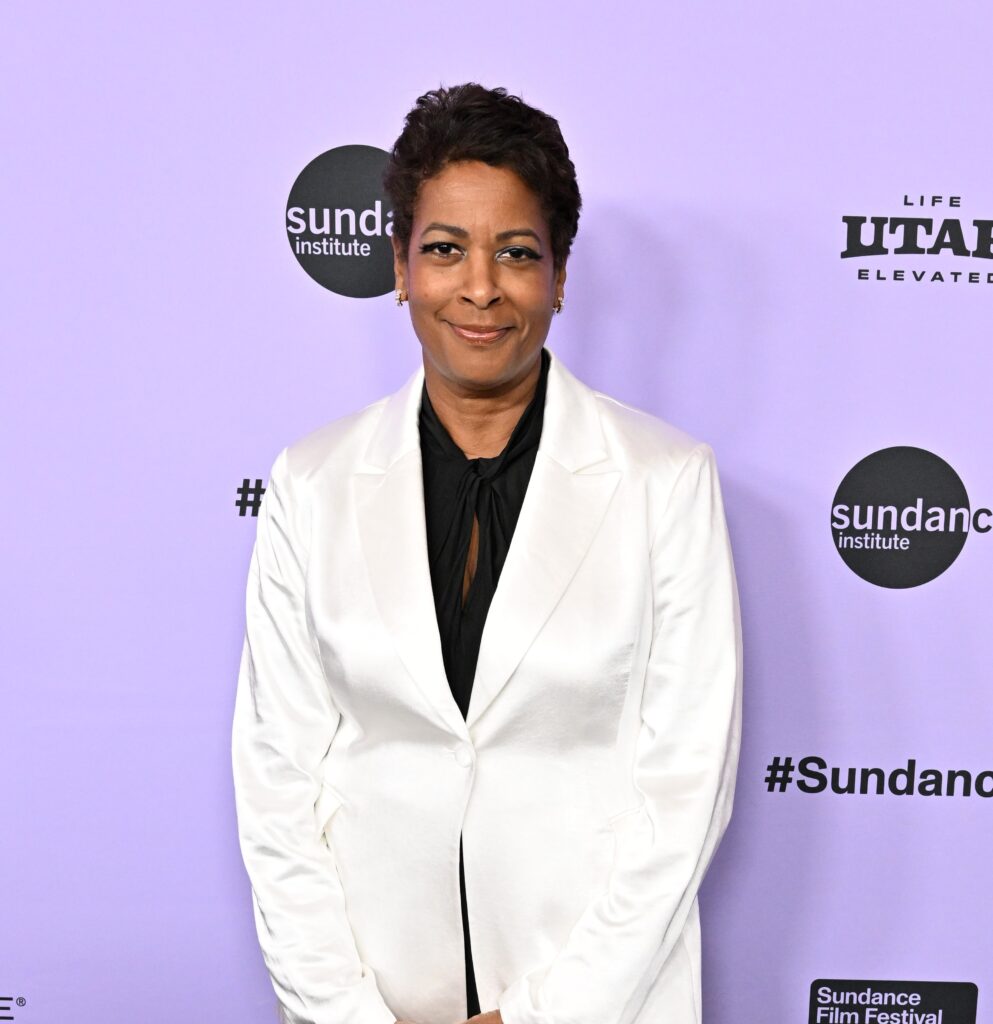
POV: Jason Gorber
DP: Dawn Porter
The following has been edited for brevity and clarity.
POV: Congratulations on the film. What is your own relationship to Luther Vandross and his body of music?
DP: It feels like Luther’s always there, you know? I certainly heard his music a lot as a kid. My parents played him all the time and his songs were always on the radio. But you don’t always appreciate things that are ubiquitous. That’s why I wanted to make the film for any audience: for those familiar and who will be delighted and surprised by some things, as well as for those that could come to it with no knowledge of his music and just be delighted and surprised in different ways. That was the welcome challenge.
I really credit Leah Smith, our producer. She’s really a superfan, much more than me before I started. This shows why it’s so good that nobody makes a film by themselves! It’s yet one more example of why I love making documentary films, and why collaboration is so much fun. You’re all adding something.
POV: This may a strange tangent, but what if any role did 20 Feet from Stardom play on this project and your introduction to Luther and his music?
DP: First of all, I love Morgan Neville’s work. One thing that Morgan does, which is so influential, and I don’t even know if people realize they’re being influenced, is that he always takes the camera and he goes here [moves hands to the side]. So, if you think about his Mr. Rogers film, Won’t You Be My Neighbor?, you could do a really straight-on profile of the man, but Morgan’s camera is interested in what’s happening everywhere. As for Luther, and regarding Lisa Fischer who is also featured in Morgan’s film, some audiences are interested in seeing our movie with the lady from 20 Feet.
In 20 Feet, you have these giant stars in front and you need to highlight the background figures. Luther started as a background singer, and he was always conscious of his background singers throughout his career. Our film is almost a companion to 20 Feet from Stardom. I feel like these movies speak to each other.
POV: How has your view of your own film changed over these multiple viewings, viewings with audiences, etc.?
DP: This is a film where there’s just unbridled joy in the audience. And it’s consistent. It’s not that it’s surprising, but it’s surprising how consistent it is. With other films, sometimes you get an audience with good energy and they encourage each other, but sometimes that alchemy doesn’t happen. With this movie, people are always joyful. I think this is really a movie for its time. We are so divided and so stressed out about politics. This movie is an “exhale.”
This movie also came together easily. It wasn’t a struggle. There’s always parts you have to work harder on, but half of it came together so beautifully. It’s because we focused on what Luther wanted to tell us. He wants to tell you about art and determination and professionalism. If you’re looking for him to explain his process, you can get a lot out of it. Another thing that he wants to tell you is how influential the people who came before him are. In his interviews, he would refer to Dionne Warrick, he would refer to Roberta Flack, over and over. It’s like he’s yelling at you, “This is what my story is!” It’s these women. I think of this film as a love letter to these artists as well.
POV: I don’t want to put you in a position of having to critique another filmmaker, but I was incredibly frustrated by the recent Little Richard doc because that was not a film that, I think, the subject would get behind at all. It’s structured with people retroactively making claims about who he was, his identity, ignoring what he explicitly said. With your film, you have somebody whose own personal life, demons, and decisions about love are so entwined with a public-facing heteronormative character that worked for a particular time. You have Patti Labelle, who’s coming out and saying she knows better, and others saying that’s contrary to Luther’s own wishes. Your film dances that knife’s edge, and that must have been incredibly challenging. Can you talk about getting that nuance right?
DP: One, I’m definitely not going to critique another film, but I will say I try hard to avoid making a “look back” movie. I try to keep you in the film and in the story. There are lots of ways you do that. The first is who you pick to speak. If you pick people who knew him so intimately that they don’t come off as merely talking heads people, they’re not here [pushes hands away], they’re here [draws hands close], and they’re trying to tell you about their personal feelings. They’re expressing what’s coming from inside, instead of at an arm’s distance, attempting to be objective. We do have one film critic, Danyel [Smith], but she’s the [former] editor of Vibe, and her job is to assess the culture. When Danyel’s speaking about the culture, for me, that place was right for her to be there. People don’t know this, but Jon Platt, who’s now the head of Sony Music Publishing, was a DJ. So he’s speaking from what he was trying to weave as a DJ using Luther’s music.
In some cases, I should have asked questions. That’s on me. When making a film like this, if your people don’t deliver perfectly, it’s on you; it’s not on them. Yet the people who do deliver in this movie, the chorus around him, those are his intimates.
But specifically to your previous question about his personal life, that was probably the hardest thing to feel like you could get right. I’m not homophobic, so I don’t want to insult the gay community by not going there. But Luther kept saying exactly how he wanted to talk about his life. That’s why I end on Fonzie saying “I’m going to let him have the last word,” and then Luther says “I’m not going to answer and I’m sorry if that’s frustrating to you. That’s not what I owe you. I owe you my talent, I owe you doing my best, I don’t owe you everything.” That really resonated with me. It made me uncomfortable because you would just love to hear what he would say today with how we live today. But we don’t have that. And you know what? Life’s uncomfortable! While it’s certainly not everybody, most people have respected that choice. There’s a couple of haters who have been like blah, blah, blah. What are you going to do?
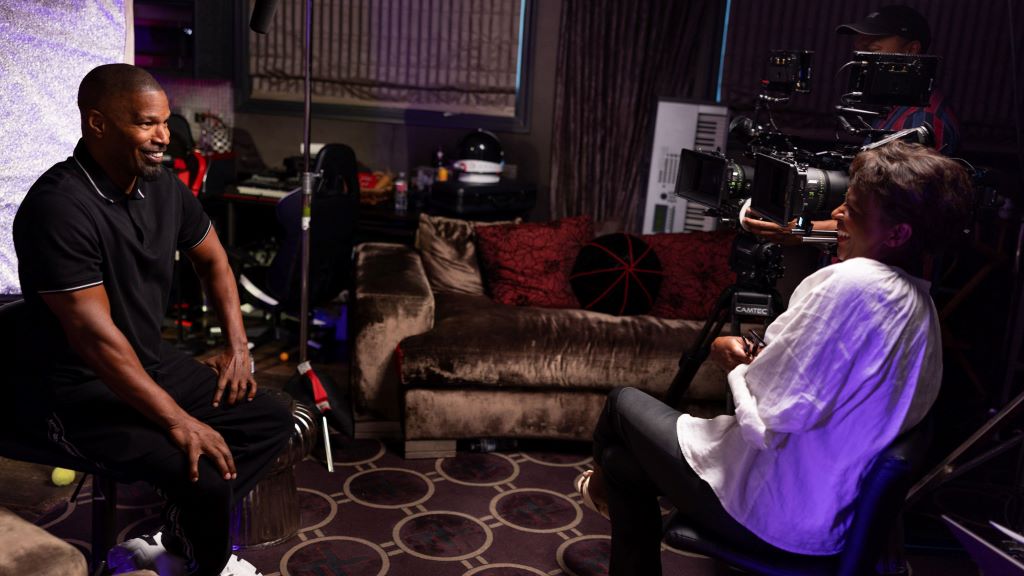
POV: Life’s uncomfortable, and we have to accept that.
DP: Sometimes you don’t get to be the star, you know? It’s not about you.
POV: One of the challenges with a film like this is that it’s balance. You can either have all of the music and therefore you have label support, or you can literally go anywhere and do anything. And it’s not as if you’re constrained in necessarily a negative way. Sinéad O’Connor had a documentary called Nothing Compares and the Prince estate didn’t give rights to the song that is the title of the film.
DP: And that’s so frustrating! And I understand once you’re committed, you can’t turn back and it’s a beautiful movie. But the coup of that movie is her performance of that song, and to not have it… I’m really glad you raised that because I do not believe this movie could have been made without Sony’s participation. That’s not only having the rehearsal footage and all of that—we simply couldn’t have afforded the amount of music that we used. It would just be too expensive. Because Sony was allowing us to mine that catalogue, we can let those songs play.
Back to your first question about how people are reacting, I think the reason people are sinking in is because those songs are not cut off in a frustrating way. By the time you get to “Never Too Much,” you are ready for that release. You know it’s coming, but I feel it comes at the right time. Because now you’re like, “k, if all I know is ‘Never Too Much,’ now I really know it.” Then the rest of the film just carries on. If that song had come too early, it wouldn’t have been appreciated. It’s like a half an hour buildup to that and then whoosh.
POV: Look, my own dream would be six hours of footage from the Listen My Brother gospel funk era. You could do six hours of him working with Bowie, you could only talk about the ’80s and early ’90s elements. Can you talk about finding the narrative throughline, given the richness of Luther’s whole story?
DP: We really spent a lot of time listening to Luther’s interviews, even a lot that are not in the movie. What I came away with is that, while we never have enough time, we need to have enough so that people can really appreciate the significance of each element in how he became the artist that he became. Filmmakers have our agendas, and one agenda was a very typical Black music artist’s trope story: “music saved me from the projects” or “music saved me from a life of crime.” That’s not Luther’s story. He lived in a housing project, but he was not poor of mind or of confidence and he didn’t really feel poor. That’s why we start with Joan Rivers asking him if he was very poor as a child, because that’s the rags-to-riches story that white audiences expect and is thought of as “acceptable.” But that’s not who he was. And that also is why the Listen My Brother era is so important.
I’m also helped here because my mother and her brothers grew up in Harlem in a building called The Riverton. She explained to us that they felt they had a very secure community, and claimed to not know there was life below 125th Street. Those were the stories I grew up with, so I knew exactly what Fonzie and Ramen and Carlos and Luther went through: They were happy kids. Their neighbourhood was their neighbourhood and it was safe. They didn’t have lot of money, but they didn’t feel poor. And if you’re not trying to feed yourself all the time, or keep yourself safe, you can do things like make art.
Listen My Brother happened around 1968, during Vietnam and all of this political stuff. They weren’t going to protest, not everybody was on a picket line, but what they were doing was communicating a sense of pride in self. That’s Luther’s story, so we need to make room for other stories of Black experience.
POV: Which, of course, then connects directly to Summer of Soul.
DP: And that’s right. And they performed at the Harlem Cultural Festival!
POV: Oh, I’m aware.
DP: They were not recorded.
POV: They were not on film, but there’s bootleg audio recordings of it.
DP: That’s right. So we didn’t have that, but that would have been so tantalizing.
POV: What do you see for audiences that have never heard of Luther? What are you seeing from those that are weaned on Beyoncé or hip-hop?
DP: Luther was so intentional about naming the people that came before him and who influenced him. I hope that [audiences] can now see a connection between him and Beyoncé. When he says, “I will not waste your ticket money,” he’s speaking to a future Beyoncé that he doesn’t know is coming. That’s what she does in her shows. The tickets are expensive, but she says I’m going to give you a show. I’m going to make it worth it for you to save up if you can’t afford these multi hundred-dollar tickets.
I want people to see how intentional he was. He didn’t just open his mouth and sing. He was working at it all, and that’s what great artists do. I want them to see that. Most people have not thought about radio being segregated and why they were deprived of this music if they weren’t seeking it out.
POV: For many, Luther Vandross does not have the cachet now that he had. Why do you think that is? Independent of your film, why do you think that his central position in the history of, forget African American music, but just music, has been diminished?
DP: Well, I think he does not have cachet with current white audiences. I think that’s exactly what it is. Like, the Black audiences are banging for this movie. It’s kind of heartbreaking to me that we’ve gotta dance to get attention, because he should get the love, and the audiences should get to see it anyway. Even though it’s a really good movie, it’s doubly offensive that it’s finding such a hard time finding a distributor. It’s not an audience problem. Every place we show it, it’s sold out, it’s standing ovations. The audience is largely a Black audience, and I think that that audience is not as valued. And I’m shocked to learn that. I guess I shouldn’t be, but I am.
POV: It’ll be interesting to see how it plays here in Toronto at the Hot Docs premiere, to see whether people come out to Luther without already having an adoration of the man.
DP: Some people are coming because they know my other movies, and they’re curious. Some people are coming because they read good things about it. I don’t know why some people are coming, but it had three sold-out screenings in Sarasota, Florida. And Detroit, which is understandable, but it’s been really interesting.
POV: Maybe on a financial basis, the label would have loved if this was a 50-minute advertisement about Luther’s greatest hits. Could that also play a factor in finding distribution?
DP: Well, we’re definitely in a recession. But I will say the questions have been rather stunning. The question has been, “Is there an audience for this movie?” That’s the question! And I’m, like, “That’s a crazy thing for you to ask me! I don’t even know how to respond to that.”
But what never occurred to me is that this would be such a hard sell. This is the most commercial thing I’ve ever done. By far. It never occurred to me to be worried about that aspect. I think it will find distribution, it’s just…it’s April already. We don’t even have to apply to festivals, they’re coming to us, for multiple screenings and the rest of it, so it’s having a very successful rollout. I can’t speak for the gatekeepers, but I will say I now feel a little naïve. I thought a decent film about a great artist would be picked up. I didn’t think it would have a problem finding a home.




